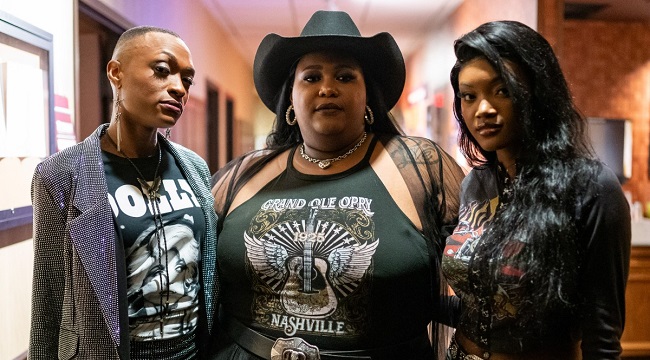“Twenty-three in Music City / With dreams and high-heeled boots / Singin’ for a crowd of blue eyes / Will they want me too?” croons Julie Williams at the Blue Room venue in Nashville.
The 26-year-old, who is biracial, is one of many Black female artists carving out space in country music’s capital, where predominantly white, male gatekeepers dictate who makes it — and who doesn’t.
Megastar Beyonce’s highly anticipated country album, out Friday, has cast a spotlight on efforts by Black performers — a vital part of the genre’s history — to create a more inclusive Nashville.
“Who’s excited for Beyonce’s new country album?” hollered Williams to applause.
“Is this what all the white girls have been feeling this whole time? Like, when they look at just someone who’s at the top of their craft and is just killing it and you get to be like, ‘Wow, that could be me’ — it’s pretty exciting.”
Speaking backstage, Williams called Beyonce’s move “a historic moment in bringing Black country to the mainstream.”
Williams is among some 200 acts associated with the Black Opry, a three-year-old collective showcasing and amplifying the voices of Black artists working across genres including country, Americana and folk.
“I’ve always been a huge fan of country music throughout my entire life, and I’ve always felt isolated in that experience. Especially as a Black, queer woman, you don’t see a lot of representation — not with the artists, the fans, the marketing material,” the Black Opry’s founder, Holly G, told AFP.
“Is this what all the white girls have been feeling this whole time? Like, when they look at just someone who’s at the top of their craft and is just killing it and you get to be like, ‘Wow, that could be me’ — it’s pretty exciting.”
Speaking backstage, Williams called Beyonce’s move “a historic moment in bringing Black country to the mainstream.”
Williams is among some 200 acts associated with the Black Opry, a three-year-old collective showcasing and amplifying the voices of Black artists working across genres including country, Americana and folk.
“I’ve always been a huge fan of country music throughout my entire life, and I’ve always felt isolated in that experience. Especially as a Black, queer woman, you don’t see a lot of representation — not with the artists, the fans, the marketing material,” the Black Opry’s founder, Holly G, told AFP.

